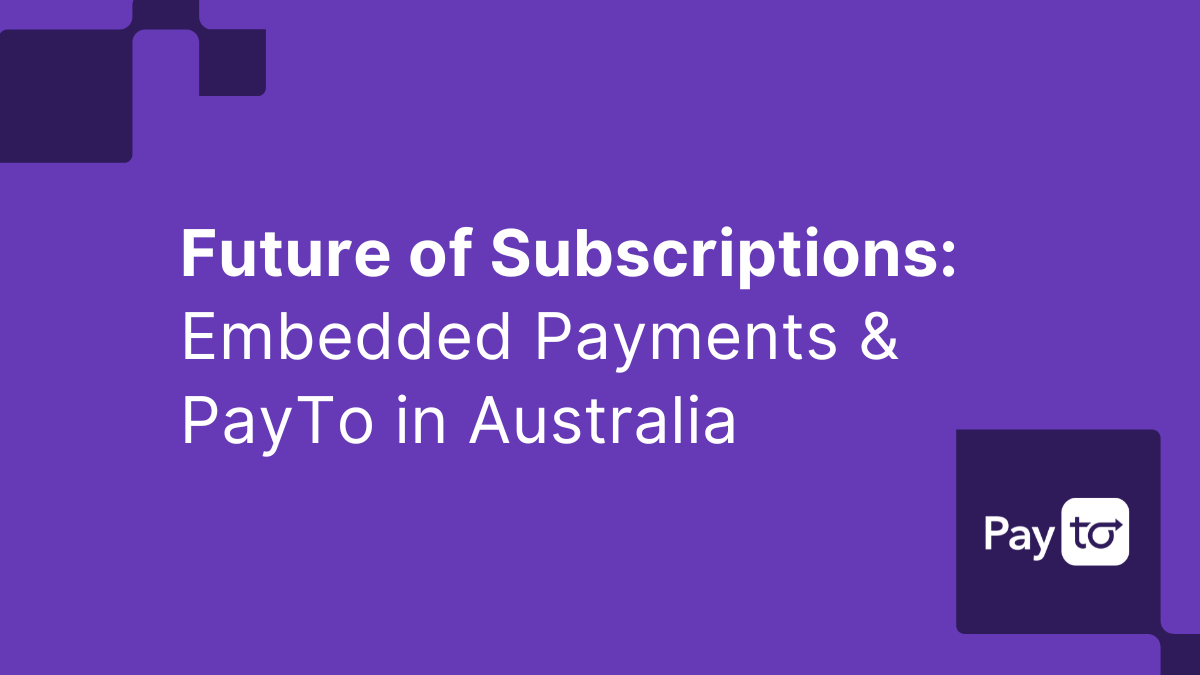Slowed down by delayed payments, missing account details and time-consuming reconciliation? PayTo gets your business moving with real-time, account-to-account payments.
What is PayTo?
PayTo is a the new, digital way for merchants and businesses to initiate real-time payments from their customers’ bank accounts.
How can PayTo be used?
Merchants can offer PayTo as an alternative payment method for a variety of products and services, such as subscriptions, online or in-app purchases.
Businesses can use PayTo to authorise third parties to manage payments on their behalf, such as payroll and accounts payable.
Third parties such as fintechs and payments service providers, can incorporate PayTo into their own service offerings to broaden their payment capabilities.
How Does PayTo Work?
Developed by New Payments Platform Australia, PayTo works on a contract between the payer (the customer) and the payee (the business).
At the core of PayTo is customer pre-authorisation of a PayTo agreement. PayTo agreements can be pre-authorised within a customer’s usual internet or mobile banking, where PayTo agreements can also be paused, resumed or cancelled. Once the agreement is approved, the payee can deduct funds straight from the payers bank account based on that agreement.
What are PayTo agreements?
Payment agreements contain the terms of the agreement like the amount and frequency of the payments that must be agreed to between the payer customer and the business or merchant before payments can be made. It’s a contract that customers can manage online through the convenience of their online banking platform.
When can I get access to PayTo for my business?
PayTo is now live. Switch on PayTo for your business with Monoova. Contact us for more information and to get access to our sandbox.
Who will offer PayTo?
NPP enabled banks, building societies and credit unions, and payment service providers, are in the process of rolling out PayTo for their payer customers. Once available, PayTo will roll out progressively from merchants, service providers and other users that have opted to integrate PayTo. View of full list of banks that have currently switched on PayTo
Do you need to use a PayID with PayTo?
PayTo agreements can be created using a PayID linked to the payer customer’s bank account OR by using a BSB and account number.
Do you need access to the New Payments Platform (NPP) to offer PayTo?
You don’t need access to the NPP to use PayTo. You just need to have an account with a participating NPP financial institution or a commercial relationship with a connected payments service provider.
Are PayTo & the ‘Mandated Payments Service the same?
Yes. Mandated Payments Service was what the solution was named as a working title as it was being developed. PayTo as it is taking shape is the business-consumer facing name.
Will PayTo replace Direct Debit?
Among other use cases, PayTo could be used as a digital and more modern alternative to the current direct debit system. It provides the ability to support a range of different recurring payment types including fixed or variable payments amounts and payment frequencies. Monoova currently powers many organisations with an Enhanced Direct Debit solution, with pioneering technology and intuitive features.
Contact us to talk about your Direct Debit needs and how PayTo may look for your organisation.
Will it be difficult for businesses to change from Direct Debit to PayTo when it goes live?
No. We are already working with Direct Debit clients and talking about their future payment needs. Depending on the client, the transition to a PayTo solution is generally seamless.
Will you have a PayTo sandbox available for testing?
Yes, we have a sandbox available in our API Docs.



.png)

